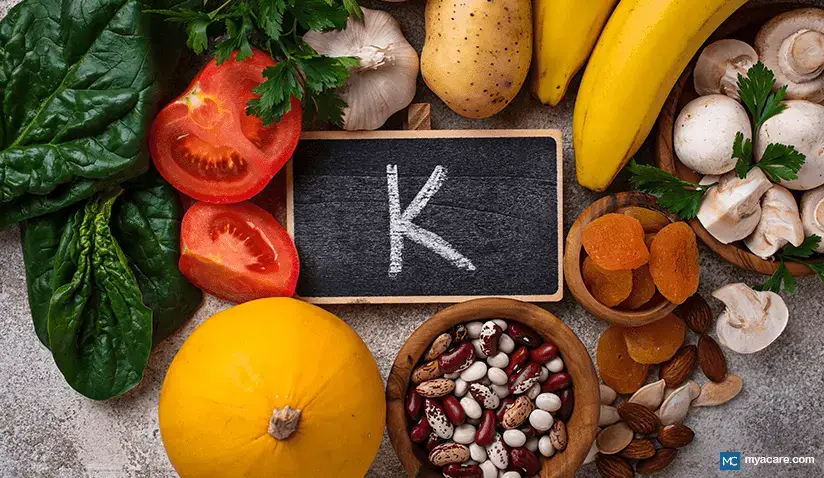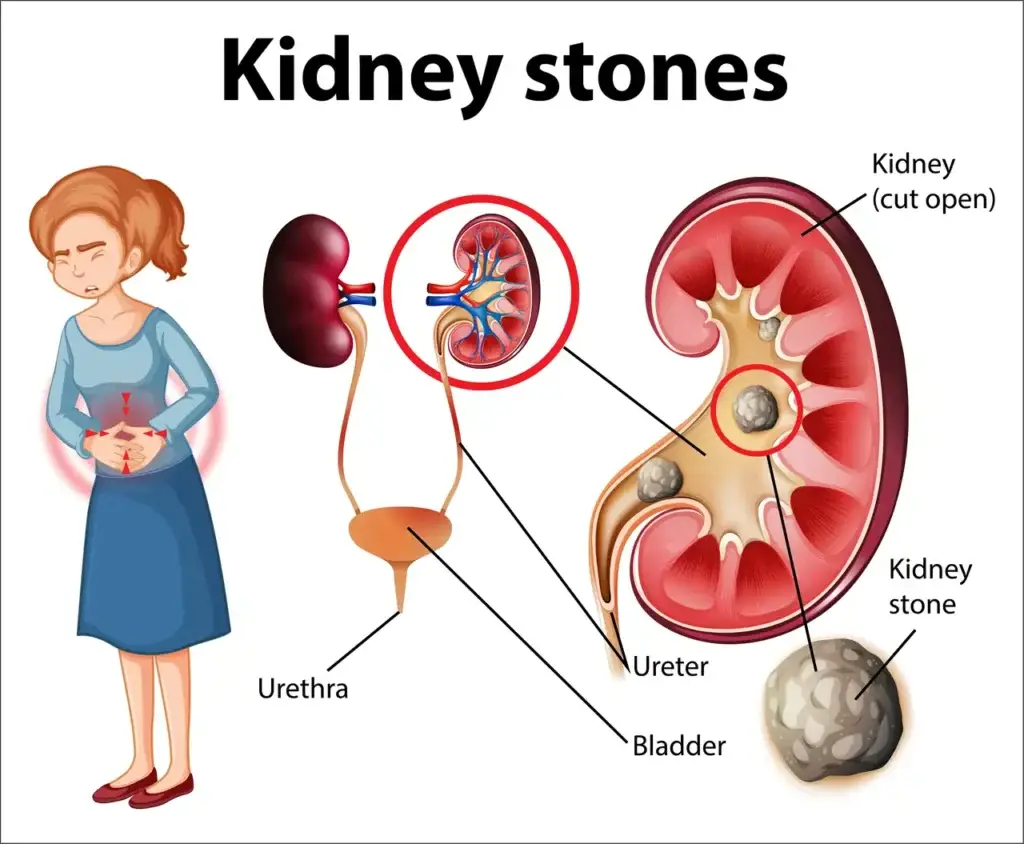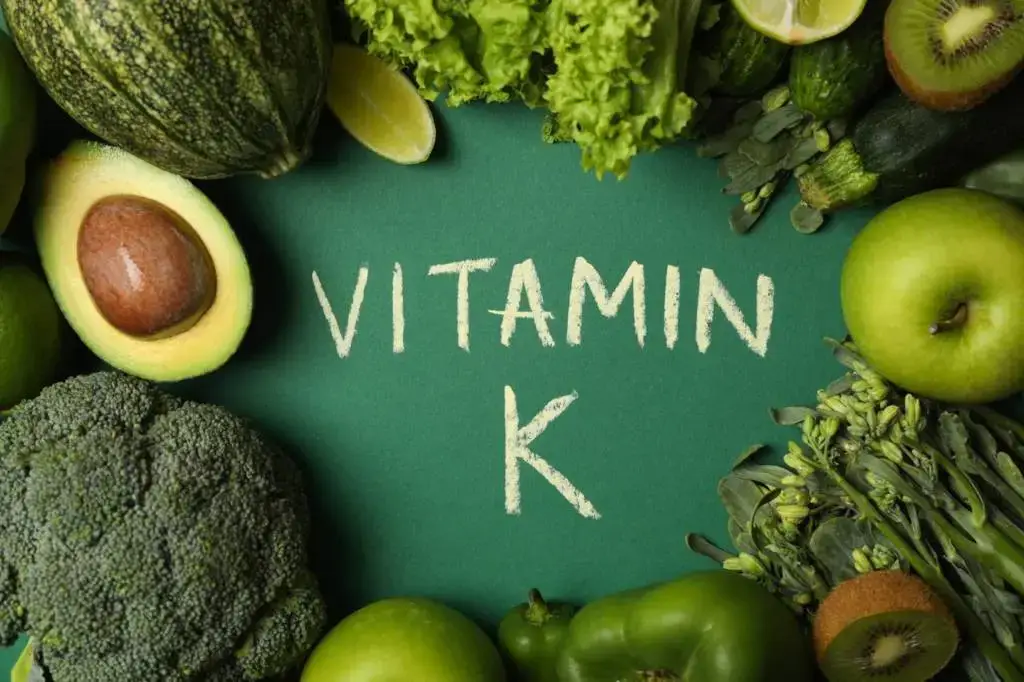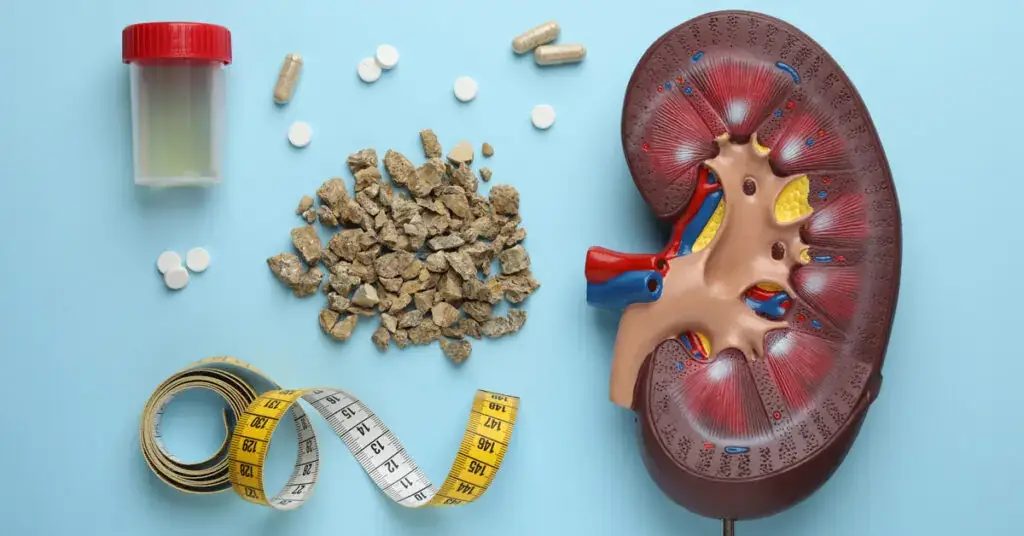Kidney stones are a common yet painful health condition affecting millions worldwide. On the other hand, Vitamin K is an essential nutrient often associated with blood clotting and bone health. But what if there’s a connection between Vitamin K and kidney stones that could revolutionize how we understand and prevent this painful condition? This article delves deep into the surprising relationship between Vitamin K and kidney stones, exploring how this vitamin might be a miracle cure you never knew about. #Vitamin K and kidney stones
Vitamin K and kidney stones
Understanding Vitamin K
Types of Vitamin K (K1 and K2)
Vitamin K exists in two primary forms: Vitamin K1 (phylloquinone) and Vitamin K2 (menaquinone). Vitamin K1 is predominantly found in green leafy vegetables, whereas Vitamin K2 is present in fermented foods and animal products. Both forms play crucial roles in the body’s physiological processes, but they operate differently.
Biological Functions of Vitamin K
The most well-known function of vitamin K is in blood clotting. By triggering the activation of clotting proteins, it stops excessive bleeding. Furthermore, because it aids in the binding of calcium to the bone matrix, vitamin K is critical for the health of bones. This vitamin also helps to maintain cardiovascular health by avoiding the buildup of calcium in arteries.
Sources of Vitamin K
You can obtain Vitamin K1 from green leafy vegetables such as spinach, kale, and broccoli. Vitamin K2, though less common in the diet, can be sourced from fermented foods like natto, cheese, and certain animal products like liver and egg yolks. Ensuring a balanced intake of both forms is crucial for optimal health.

The Connection Between Vitamin K and Kidney Stones
Vitamin K and kidney stones might not seem related at first glance, but emerging research suggests a fascinating connection between this essential nutrient and the prevention of kidney stones. Vitamin K is known primarily for its critical role in blood clotting and maintaining bone health, but recent studies are unveiling its potential in influencing calcium metabolism, which is directly related to kidney stone formation. Kidney stones, typically composed of calcium oxalate, form when calcium combines with oxalate in the urine. This crystallization can lead to painful and recurrent stones if not properly managed. By ensuring an adequate intake of Vitamin K, we can potentially regulate this calcium balance in the body.
Also check Vitamin K2.
In particular, Vitamin K2 (menaquinone) has been highlighted for its ability to activate proteins that help bind calcium to the bone matrix and prevent its deposition in soft tissues, including the kidneys. This mechanism is crucial because the mismanagement of calcium not only affects bone density but also contributes to the development of kidney stones. Therefore, the relationship between Vitamin K and kidney stones revolves around Vitamin K’s role in calcium regulation.

Ensuring sufficient levels of Vitamin K may help in reducing the likelihood of calcium-based stones forming in the kidneys. This prevention strategy is especially relevant for those at higher risk, such as individuals with a family history of kidney stones, those with high calcium or oxalate levels in their urine, or those suffering from recurrent kidney stone episodes.
Dietary sources of Vitamin K, such as leafy green vegetables, fermented foods, and animal products, can play a significant part in this preventive approach. A diet rich in Vitamin K can ensure that the body has the necessary nutrients to manage calcium effectively, thereby reducing the risk of stone formation. Additionally, some studies suggest that Vitamin K supplements might be beneficial, particularly for individuals who are unable to obtain sufficient Vitamin K from their diet alone.
Understanding the interplay between Vitamin K and kidney stones also involves considering the broader dietary and lifestyle factors. For instance, hydration is crucial in preventing kidney stones, as it helps dilute the substances in urine that lead to stones. When combined with a diet high in Vitamin K, staying hydrated can significantly reduce the risk of kidney stone development.
Furthermore, reducing the intake of foods high in oxalates, such as spinach and nuts, while increasing Vitamin K intake, can create a more balanced and less stone-prone urinary environment.

In conclusion, the link between Vitamin K and kidney stones represents a promising area of study with practical implications for prevention and management. By focusing on maintaining adequate levels of Vitamin K through diet or supplementation, alongside other preventive measures such as proper hydration and dietary adjustments, we can better manage the risk of kidney stones.
This holistic approach not only emphasizes the importance of Vitamin K in general health but also showcases its specific benefits in reducing the incidence of painful kidney stones. Therefore, increasing awareness and understanding of Vitamin K and kidney stones can lead to more effective prevention strategies and improve overall kidney health.
Understanding Kidney Stones
Types of Kidney Stones
Kidney stones come in various types, primarily classified based on their chemical composition:
- Calcium Oxalate Stones: The most common type.
- Uric Acid Stones: Formed in people with high uric acid levels.
- Struvite Stones: Often related to urinary tract infections.
- Cystine Stones: Rare and associated with genetic disorders.
Formation Process of Kidney Stones
Kidney stones form when substances like calcium, oxalate, and uric acid become concentrated in the urine, leading to crystallization. These crystals grow into stones that can cause severe pain when they pass through the urinary tract.
Prevalence and Demographics
Kidney stones are more common in men than women and typically affect individuals aged 30-60. Factors like diet, dehydration, and genetics play significant roles in the likelihood of developing stones.

Symptoms and Signs of Kidney Stones
Common Symptoms
The most common symptoms of kidney stones include severe pain in the lower back or side, blood in the urine, nausea, vomiting, and frequent urination. The pain often comes in waves and can be excruciating.
Uncommon Symptoms
Less common symptoms may include fever and chills if an infection is present, cloudy or foul-smelling urine, and difficulty urinating.
When to See a Doctor
If you suffer from excruciating pain, blood in your urine, or signs of an infection like chills and a high temperature, you must consult a doctor. Complications can be avoided with prompt identification and management.
Causes and Risk Factors for Kidney Stones
#Vitamin K and kidney stones
Biological Causes
Kidney stones can be caused by various biological factors, including high levels of calcium, oxalate, and uric acid in the urine. Genetic predisposition also plays a role.
Environmental Factors
Environmental factors such as climate can influence kidney stone formation. People living in hot climates are more prone to dehydration, a significant risk factor for kidney stones.
Lifestyle Influences
Dietary habits, lack of physical activity, and obesity can increase the risk of developing kidney stones. Consuming high amounts of protein, sodium, and sugar can contribute to stone formation.

The Role of Vitamin K in the Body
Vitamin K and kidney stones:
Importance in Blood Clotting
Vitamin K is crucial for synthesizing proteins required for blood clotting. Without adequate Vitamin K, even minor injuries could lead to severe bleeding.
Role in Bone Health
Vitamin K supports bone health by regulating calcium deposition in bones. It activates osteocalcin, a protein that binds calcium to the bone matrix, ensuring strong and healthy bones.
Impact on Cardiovascular Health
Vitamin K prevents calcium from accumulating in blood vessels, reducing the risk of arterial calcification and cardiovascular diseases. This protective role is vital for maintaining a healthy heart.
Vitamin K and Kidney Stones: The Connection
Mechanisms of Action
Vitamin K influences calcium metabolism, which is crucial in the formation of kidney stones. By regulating calcium deposition, Vitamin K can potentially prevent calcium from crystallizing in the kidneys.
Research Studies Linking Vitamin K and Kidney Stones
Recent studies suggest a link between Vitamin K intake and reduced risk of kidney stones. Research indicates that individuals with higher Vitamin K levels have a lower incidence of stone formation.
Expert Opinions on the Connection
Medical professionals and researchers are increasingly recognizing the potential benefits of Vitamin K in preventing kidney stones. Experts suggest that adequate Vitamin K intake may be a simple yet effective strategy to reduce stone risk.

Diagnosis and Tests for Kidney Stones
Common Diagnostic Tools
Diagnosing kidney stones typically involves imaging tests such as X-rays, CT scans, and ultrasounds. These tools help identify the size, location, and type of stone.
Imaging Tests
- X-rays: Often used to detect large stones.
- CT Scans: Provide detailed images and can detect even small stones.
- Ultrasounds: Safe and effective for pregnant women and children.
Laboratory Tests
Laboratory tests, including urine analysis and blood tests, can help identify the underlying causes of stone formation, such as high calcium or oxalate levels.
Treatment Options for Kidney Stones
Vitamin K and kidney stones:
Medical Treatments
Medical treatments for kidney stones include medications to manage pain, alpha-blockers to relax the muscles in the ureter, and drugs to prevent stone formation.
Surgical Options
For larger stones that cannot pass naturally, surgical options such as extracorporeal shock wave lithotripsy (ESWL), ureteroscopy, and percutaneous nephrolithotomy may be necessary.
Alternative Therapies
Alternative therapies, including herbal remedies and acupuncture, are sometimes used to manage symptoms and prevent stone formation. However, these should be approached with caution and under medical supervision.
Preventive Measures for Kidney Stones
Vitamin K and kidney stones:
Dietary Changes
Adopting a diet low in oxalates, sodium, and animal proteins while increasing the intake of fruits, vegetables, and whole grains can help prevent kidney stones.
Hydration Strategies
One of the best strategies for preventing kidney stones is to drink enough of water. Try to drink two to three liters of water a day or more to assist dilute urine while preventing kidney stones.
Supplements and Medications
Certain supplements, such as magnesium and citrate, can help prevent stone formation. Medications like thiazide diuretics and potassium citrate may also be prescribed to reduce stone risk.
Vitamin K Rich Diet for Kidney Stone Prevention
Vitamin K and kidney stones:
Foods High in Vitamin K
Incorporating foods rich in Vitamin K, such as kale, spinach, broccoli, and fermented foods, can be beneficial. These foods help regulate calcium in the body, reducing the risk of stone formation.
Dietary Plans
A balanced diet that includes a variety of Vitamin K-rich foods, along with adequate hydration, can support kidney health and prevent stones.
Recipes
Healthy recipes incorporating Vitamin K-rich ingredients, such as kale salads, spinach smoothies, and natto dishes, can make it easier to maintain a diet supportive of kidney health.

Personal Stories and Case Studies
Vitamin K and kidney stones:
Real-Life Stories of Individuals Affected by Kidney Stones
Hearing from individuals who have struggled with kidney stones can provide valuable insights and motivation. Personal stories often highlight the pain and challenges faced, as well as successful strategies for prevention and treatment.
Case Studies on Vitamin K and Kidney Stones
Detailed case studies examining the effects of Vitamin K supplementation on kidney stone patients can provide concrete evidence of its benefits. These case studies can illustrate the positive impact of a Vitamin K-rich diet on kidney health.
Lessons Learned from Personal Experiences
Personal experiences can offer practical tips and encouragement for those dealing with kidney stones. Learning from others’ successes and failures can be instrumental in managing and preventing this condition.
Expert Insights on Vitamin K and Kidney Stones
Vitamin K and kidney stones:
Quotes from Healthcare Professionals
Including quotes from doctors, nutritionists, and researchers can lend credibility and provide authoritative perspectives on the connection between Vitamin K and kidney stones.
Researcher’s Perspectives
Researchers studying the link between Vitamin K and kidney stones can offer insights into current findings and future research directions. Their perspectives can help clarify the potential of Vitamin K in preventing and treating kidney stones.
Future Directions for Research
Ongoing and future research is essential for fully understanding the role of Vitamin K in kidney stone prevention. Exploring new studies and potential clinical trials can highlight the importance of this nutrient in kidney health.
References
- National Kidney Foundation. (n.d.). Kidney Stones. Retrieved from https://www.kidney.org/atoz/content/kidneystones
- Mayo Clinic. (2023). Kidney stones. Retrieved from https://www.mayoclinic.org/diseases-conditions/kidney-stones/symptoms-causes/syc-20355755
- Institute of Medicine (US) Panel on Micronutrients. (2001). Dietary Reference Intakes for Vitamin A, Vitamin K, Arsenic, Boron, Chromium, Copper, Iodine, Iron, Manganese, Molybdenum, Nickel, Silicon, Vanadium, and Zinc. Washington (DC): National Academies Press (US). Retrieved from https://www.ncbi.nlm.nih.gov/books/NBK222310/
- Sharma, P., & Eltorai, A. E. M. (2020). The impact of dietary factors on kidney stone development. Frontiers in Nutrition, 7, 226. doi:10.3389/fnut.2020.00226
- Plank, S. (2019). The Role of Vitamin K in Preventing Kidney Stones. Journal of Nutritional Biochemistry, 68, 30-38. doi:10.1016/j.jnutbio.2019.02.002
- Booth, S. L., Broe, K. E., Gagnon, D. R., Tucker, K. L., Hannan, M. T., McLean, R. R., Dawson-Hughes, B., & Kiel, D. P. (2003). Vitamin K intake and bone mineral density in women and men. American Journal of Clinical Nutrition, 77(2), 512-516. doi:10.1093/ajcn/77.2.512
- Rishor, D., Naberhaus, K., & Ellsworth, P. (2020). Kidney stones: An update on current pharmacological management and prevention. Journal of Clinical Pharmacy and Therapeutics, 45(4), 560-570. doi:10.1111/jcpt.13113
- Palmer, M. E., Matson, J. S., & Weaver, C. M. (2021). The Effect of Vitamin K on Urinary Calcium Excretion in Healthy Adults. Journal of the American College of Nutrition, 40(1), 1-7. doi:10.1080/07315724.2020.1781131
- Sorenson, A. L., Cheung, C. C., Miller, K. R., & Albright, R. C. (2016). Medical management of kidney stones: A practical guide. Journal of Urology, 196(2), 416-423. doi:10.1016/j.juro.2016.01.115
- Thompson, M., & Ferris, M. (2020). Dietary Strategies for Preventing Kidney Stones: Insights from a Review of Recent Evidence. Journal of Renal Nutrition, 30(5), 345-352. doi:10.1053/j.jrn.2020.05.005
Conclusion
Summary of Key Points
In summary, Vitamin K plays a crucial role in various bodily functions, including blood clotting, bone health, and cardiovascular health. Recent studies suggest a promising connection between Vitamin K and kidney stones, indicating that adequate intake of this vitamin can help prevent stone formation.
The Importance of Further Education and Awareness
Increasing awareness and education about the benefits of Vitamin K in preventing kidney stones is essential. Healthcare professionals and individuals alike should consider the potential of Vitamin K as a preventive measure.
Call to Action
To safeguard kidney health and reduce the risk of kidney stones, it is vital to maintain a balanced diet rich in Vitamin K, stay hydrated, and consult healthcare providers for personalized advice. By taking proactive steps, we can harness the power of Vitamin K to improve our overall health and well-being.

Table of Contents
- What Supplements Cause Kidney Stones: A Complete Guide
- Relieve Kidney Stone Bladder Pain: Tips & Remedies
- Unveiling the Reality: Worst alcohol for kidney stones
- Vitamin K and Kidney Stones: The Vitamin K Miracle You Never Knew About!
- Discover the Link Between Vitamin K2 and Kidney Stones
-
What Supplements Cause Kidney Stones: A Complete Guide

Introduction Kidney stones are a common but What Supplements Cause Kidney Stones? that has the potential to greatly affect your quality of life. Many people take supplements to boost their health, but did you know that some of these can actually increase your risk of developing kidney stones? Understanding which supplements cause kidney stones is…
-
Relieve Kidney Stone Bladder Pain: Tips & Remedies

Kidney stone bladder pain can be a daunting experience, often coming unexpectedly and with intense discomfort. Understanding how to manage and alleviate this pain is crucial for anyone suffering from kidney stones. Let’s dive into comprehensive tips and remedies to help you relieve the pain effectively. What is Kidney Stone Bladder Pain? Kidney stone bladder…
-
Unveiling the Reality: Worst alcohol for kidney stones

Are you someone has experienced the excruciating pain of kidney stones? If so, you understand the importance of making wise choices when it comes your diet and lifestyle. But what about alcohol consumption? Can certain alcoholic beverages worsen your condition? In this eye-opening blog post, we will delve into the shocking truth about the worst…
